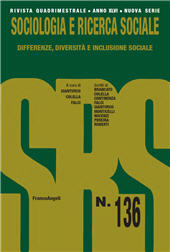Metamorfosi e conoscenza incorporata : (ri)pensare la decolonialità a partire dall'arte Huni Kuin
52-70 p.
This article delves into the concept of decoloniality as an epistemic shift, analyzing the notions of "metamorphosis" and "embodied knowledge" present in the worldview of the indigenous Huni Kuin people of Brazil. Through theoretical analysis that brings together the aesthetic decolonial turn and counter-coloniality, the text examines how the aesthetic forms of Huni Kuin art from the MAHKU collective (Movement of Huni Kuin Artists) represent a type of embodied knowledge. This knowledge is founded on the transit between species and on metamorphosis, central elements in their cosmologies. These notions offer important interpretive keys for understanding the ecological specificities of indigenous thought and their relationship between humans, non-humans, and nature, pushing us to rethink decoloniality as an epistemic opening towards nonÂÂWestern knowledge. [Publisher's text]
Is part of
Sociologia e ricerca sociale : 136, 1, 2025-
Articles from the same issue (available individually)
-
Information
ISSN: 1971-8446
DISCIPLINES


